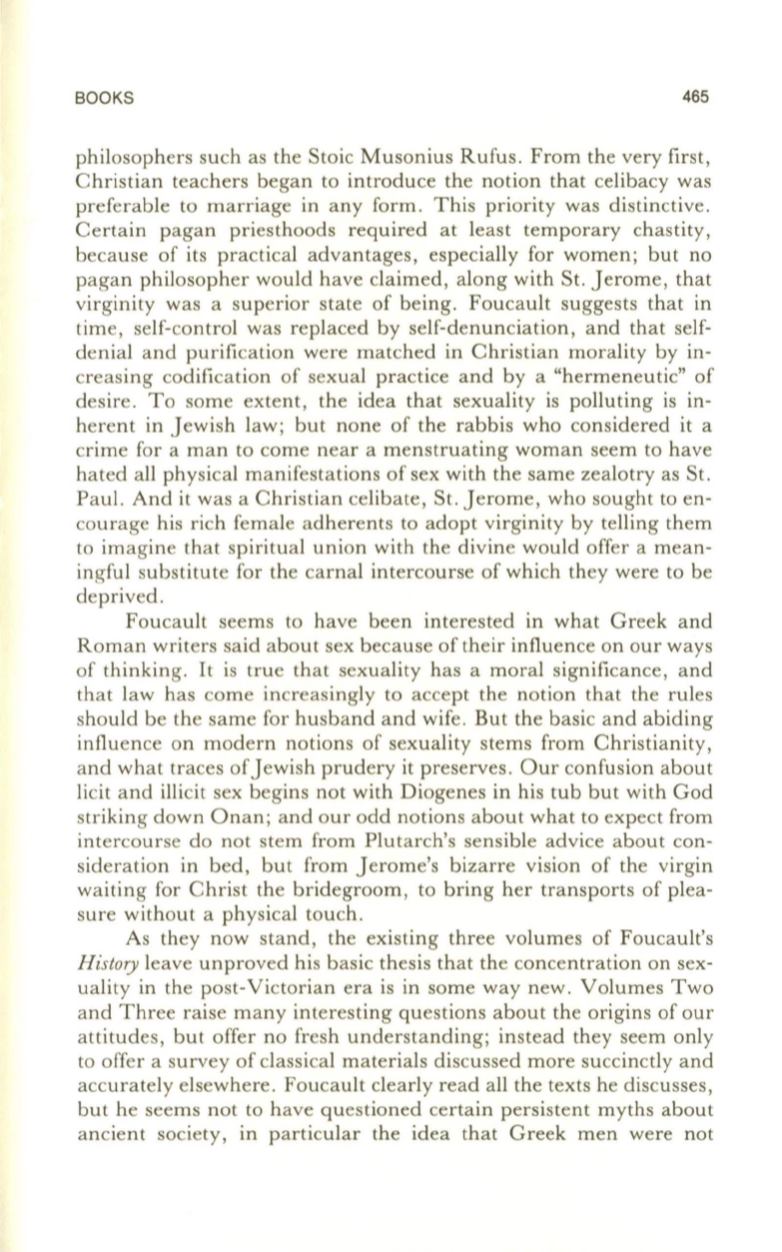
BOOKS
465
philosophers such as the Stoic Musonius Rufus. From the very first,
Christian teachers began to introduce the notion that celibacy was
preferable to marriage in any form. This priority was distinctive.
Certain pagan priesthoods required at least temporary chastity,
because of its practical advantages, especially for women; but no
pagan philosopher would have claimed, along with St. Jerome, that
virginity was a superior state of being. Foucault suggests that in
time, self-control was replaced by self-denunciation, and that self–
denial and purification were matched in Christian morality by in–
creasing codification of sexual practice and by a "hermeneutic" of
desire. To some extent, the idea that sexuality is polluting is in–
herent in Jewish law; but none of the rabbis who considered it a
crime for a man to come near a menstruating woman seem to have
hated all physical manifestations of sex with the same zealotry as St.
Paul. And it was a Christian celibate, St. Jerome, who sought to en–
courage his rich female adherents to adopt virginity by telling them
to imagine that spiritual union with the divine would offer a mean–
ingful substitute for the carnal intercourse of which they were to be
deprived.
Foucault seems to have been interested in what Greek and
Roman writers said about sex because of their influence on our ways
of thinking.
It
is true that sexuality has a moral significance, and
that law has come increasingly to accept the notion that the rules
should be the same for husband and wife. But the basic and abiding
influence on modern notions of sexuality stems from Christianity,
and what traces ofJewish prudery it preserves. Our confusion abou t
licit and illicit sex begins not with Diogenes in his tub but with God
striking down Onan; and our odd notions about what to expect from
intercourse do not stem from Plutarch's sensible advice about con–
sideration in bed, but from Jerome's bizarre vision of the virgin
waiting for Christ the bridegroom, to bring her transports of plea–
sure without a physical touch.
As they now stand, the existing three volumes of Foucault's
History
leave unproved his basic thesis that the concentration on sex–
uality in the post-Victorian era is in some way new. Volumes Two
and Three raise many interesting questions about the origins of our
attitudes, but offer no fresh understanding; instead they seem only
to offer a survey of classical materials discussed more succinctly and
accurately elsewhere. Foucault clearly read all the texts he discusses,
but he seems not to have questioned certain persistent myths about
ancient society, in particular the idea that Greek men were not


